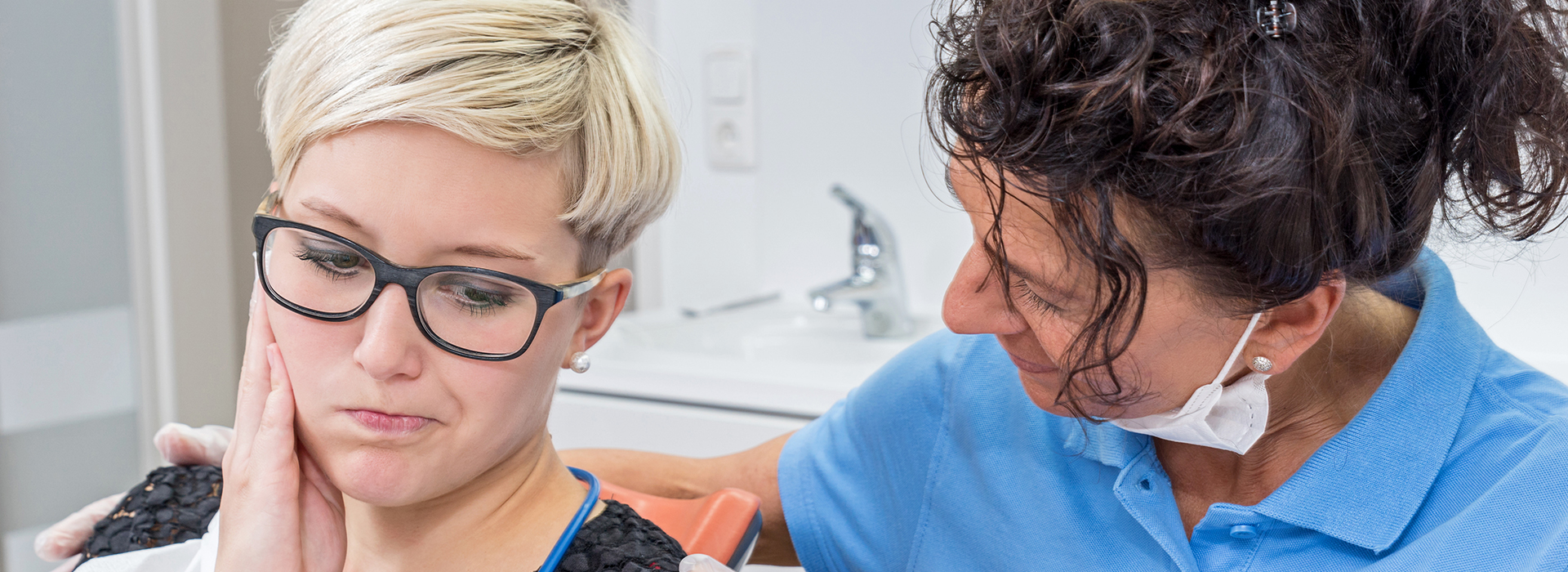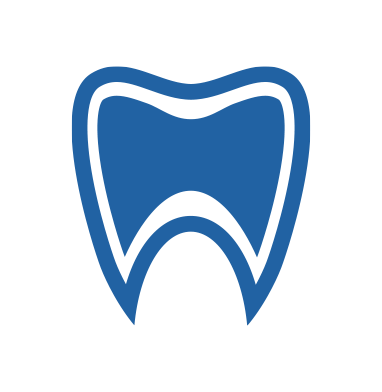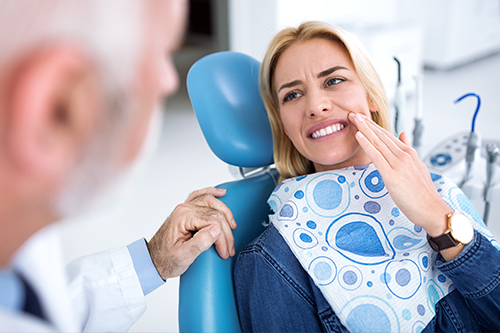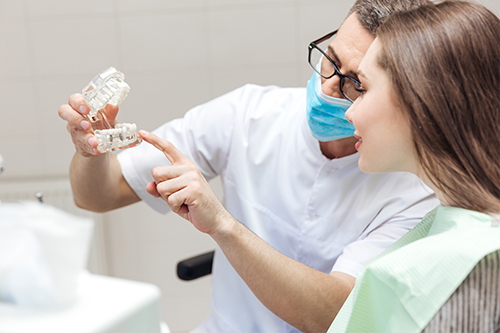
When a dental injury or sudden oral pain occurs, the moments that follow can determine how quickly you recover and how much of the tooth or supporting tissue can be preserved. Start by assessing safety — stop any bleeding with gentle pressure using clean gauze or a soft cloth, and avoid putting aspirin or household remedies directly on the gums or exposed nerve tissue. If there is swelling, a cold compress applied to the cheek can help reduce inflammation and provide short-term comfort.
For knocked-out teeth, time matters. If you can find the tooth, handle it by the crown (the chewing surface), rinse it gently if dirty, and try to reinsert it into the socket without forcing it. If reinsertion isn’t possible, keep the tooth moist by placing it in milk or a tooth preservation product, or tuck it between the cheek and gum. Calling for prompt professional care increases the chance of saving the tooth.
Not every urgent dental situation needs dramatic first aid, but knowing how to respond reduces anxiety and protects long-term outcomes. If you’re unsure how serious the problem is, treat persistent, worsening, or unexplained oral pain as an urgent situation and seek immediate evaluation rather than waiting for it to resolve on its own.
Dental emergencies can take many forms, and timely evaluation helps prevent complications. Common urgent conditions include severe toothaches, cracked or fractured teeth, dislodged restorations such as crowns or fillings, and traumatic injuries from accidents or sports. Infections that produce swelling, fever, or difficulty breathing or swallowing require immediate attention because they can spread beyond the mouth.
Other frequent concerns include problems with dentures that suddenly become painful or cause sores, erupting or impacted wisdom teeth causing acute pain, and soft-tissue injuries to the lips, tongue, or cheeks. Even symptoms that seem minor at first — persistent bleeding after an extraction, a new lump or ulcer that doesn’t heal, or sudden numbness — should be evaluated promptly to rule out progressing conditions.
When in doubt, it’s better to have a professional assessment. Early diagnosis lets clinicians recommend the most conservative and effective treatment, which often means preserving natural teeth and avoiding more invasive procedures later.
Our team coordinates with nearby medical services when situations extend beyond oral treatment alone, ensuring patients receive appropriate care for facial trauma, significant swelling, or systemic symptoms associated with oral infections.
Emergency dental appointments are focused and efficient: the primary goal is to relieve pain, control infection or bleeding, and stabilize the condition so you can return to normal function. When you arrive, a clinician will take a focused history to understand the timing and severity of symptoms and perform a targeted examination. Digital X-rays or other imaging may be used immediately to assess fractures, root involvement, or hidden infections.
Many urgent treatments can be completed during the first visit, such as temporary restorations, suturing soft-tissue lacerations, or initiating antibiotics when an infection is present. When a tooth is cracked or dislodged, stabilization techniques — for example, splinting a loose tooth — can protect the area while a definitive plan is developed. Clear communication about treatment options and next steps is prioritized so patients understand both immediate care and any required follow-up.
Comfort and safety are central during emergency visits. Local anesthesia is used when necessary to manage pain, and clinicians can discuss sedation options for particularly anxious patients. Because emergencies often come with heightened stress, the team takes time to explain what is happening and why each recommended step matters for long-term oral health.
The approach to treating an emergency depends on the nature and extent of the problem. Small fractures and lost fillings may be restored with bonding or new restorations that protect the tooth structure and relieve sensitivity. More significant damage may require crowns to restore strength and function. One priority in emergency care is to preserve the natural tooth whenever feasible, because a saved tooth typically provides better functionality and comfort than a replacement.
If trauma or decay reaches the tooth's nerve, root canal treatment is a dependable way to eliminate infection and maintain the tooth. Modern endodontic techniques have high success rates and often allow patients to keep their teeth for many years. In some cases, extraction is the most appropriate immediate course of action — either because the tooth cannot be stabilized or to prevent spread of infection.
When a tooth is lost, there are established restorative pathways that restore chewing function and appearance. Treatment planning after an emergency considers the patient’s overall dental health and long-term goals, and may include dental implants, fixed bridges, or removable prosthetics as part of a comprehensive plan to reestablish a healthy, comfortable bite.
Care after an emergency visit is crucial to ensure proper healing and to reduce the risk of complications. Patients are given clear, easy-to-follow instructions about oral hygiene, wound care, and signs to watch for that would warrant a return visit. Pain and swelling are typically managed with recommended over-the-counter measures and, when needed, prescription medications; follow-up appointments are scheduled to complete definitive restorations or further evaluate healing.
Prevention plays a central role in reducing the likelihood of future emergencies. Protective strategies include wearing mouthguards during contact sports, addressing teeth that are already weakened by decay or large restorations, and treating erupting wisdom teeth before they cause acute problems. Regular dental exams and imaging help detect vulnerabilities early so they can be treated proactively.
Knowing when to return is part of good aftercare: persistent or worsening pain, new swelling, fever, or any changes in sensation should prompt immediate follow-up. Routine follow-up visits are typically arranged to transition from temporary stabilization to a final restorative solution that prioritizes function, comfort, and appearance.
Throughout urgent care and recovery, the emphasis is on restoring health while minimizing disruption to daily life. A coordinated approach that blends prompt treatment, clear aftercare instructions, and preventive planning helps patients move from crisis to stability with confidence.
At M. Kurt Berky, DDS, PC, our emergency protocols and experienced team are dedicated to fast, compassionate care that protects your smile and your overall well-being. If you have questions or need urgent assistance, please contact us for more information about how we can help.


Pain is your body's way of signaling that something is not quite right and though there are many reasons for oral pain, one of the most common complaints and reasons for seeking urgent dental care is a toothache. Whether you simply need a dental filling, a crown, or require a root canal procedure to save your tooth, we'll alleviate your discomfort and restore the look and function of the involved tooth.

Dental trauma can result in a defect as minor as a small chip in tooth enamel to a more extensive and painful crack or fracture. With sufficient force, a tooth can even be displaced or completely knocked out of its socket. With prompt emergency care, many injured teeth can be restored and saved.

The last teeth in your mouth to develop, wisdom teeth often do not have enough room to fully erupt or may be positioned in the wrong direction. These issues can affect your dental health as well as overall well-being. Our office provides skilled care to address the complications caused by problematic wisdom teeth.

A broken or lost dental prosthesis or restoration can cause embarrassing gaps in your smile as well as compromise your ability to eat and speak with ease. If you've lost or broken a dental filling, denture, crown, or other dental appliance, you can rely on our office to perform a prompt repair or provide a durable and cosmetically pleasing replacement as quickly as possible.
At the office of M. Kurt Berky, DDS, PC, emergency appointments are always available. Of course, in addition to providing top treatment for dental emergencies, we also welcome patients searching for high quality and affordable care. We offer a complete range of the latest and best cosmetic and dental services for every member of your family.
If you are suffering from a toothache or have sustained a dental injury, it is important to visit the dentist as soon as possible before more serious complications arise. Whether your dental emergency is painful, if it affects the appearance of your smile, or if you suspect that an infection is present, our office will make every effort to see you as promptly as possible for care.
At the office of M. Kurt Berky, DDS, PC, we treat your dental emergency as our top priority. Our caring team will respond to your emergency call right away, making sure you get the gentle, state-of-the-art care you need without delay.
As your trusted emergency dentist in Branford, we provide the highest quality of care to mitigate the stress, anxiety, and discomfort of dental problems. Our dedicated team will help you start feeling better as soon as we receive your emergency call.
At the office of M. Kurt Berky, DDS, PC, we provide skilled and experienced care to effectively resolve a broad range of dental emergencies, restoring a patient's oral health while protecting their overall wellbeing.
However, even so, specific dental emergencies pose significant threats to one's health. These situations require immediate, emergency room care. Serious and potentially life-threatening dental emergencies include significant oral and facial trauma such as jaw fractures, deep wounds or lacerations to the face and mouth, an abscess or infection that causes widespread facial or submandibular swelling, or affects breathing and swallowing.
At the office of M. Kurt Berky, DDS, PC, we provide prompt, skilled, and experienced care to address dental emergencies. We understand that finances are always a concern and do our best to provide options in care that are both affordable and respect your budget.
Once we've had the opportunity to examine your smile, we can give you a clear picture of any existing dental issues, along with a quote for what the cost of treatment will be. The cost of care all depends upon the extent and complexity of issues affecting the health or appearance of your smile and the types of procedures that are required.
To help alleviate any additional stress or delay, you can count on our staff to work with you to optimize coverage for your dental care and to minimize your out-of-pocket expenses. For patients without insurance, we strive to make things easier as well! We invite you to visit our financial information page or speak to an expert in our business office.
Dental emergencies are often painful and debilitating experiences. For this reason it's important to have an emergency dentist in Branford, who welcomes patients with urgent dental needs while providing the prompt care required to restore oral health.
Here are just some of the reasons why so many patients choose our office for emergency dental care and to meet their family's dental needs:
We're dedicated to helping patients enjoy good oral health and beautiful smiles. We look forward to helping you keep your smile in tip-top condition. You can rest assured that our highly skilled office team will provide you the highest quality of state-of-the-art dental care and have you smiling again in no time!
To make an appointment or for more information on our office and the many state-of-the-art services we provide, give us a call today.
A dental emergency is any oral condition that requires prompt attention to relieve severe pain, stop ongoing bleeding, prevent infection, or preserve a tooth. Common examples include uncontrolled tooth pain, a knocked-out tooth, a fractured tooth that exposes the inner pulp, swelling that affects breathing or swallowing, and a spreading oral infection. Time is often a critical factor in these situations because early treatment can protect oral structures and reduce the risk of complications.
If you experience any of these problems, seek immediate care rather than waiting for a routine appointment. The office of M. Kurt Berky, DDS, PC provides urgent assessment and treatment to stabilize your condition and limit further damage. Quick action can often mean the difference between saving and losing a tooth or preventing a more serious systemic infection.
After a dental injury, the first priorities are to control bleeding, reduce swelling, and protect damaged teeth or tissues. Rinse your mouth gently with warm water to clear debris, apply direct pressure with gauze to stop bleeding, and use a cold compress on the cheek to limit swelling. Avoid probing the injured area with your tongue or fingers and do not apply household adhesives or substances to broken teeth.
If a tooth has been displaced or loosened, try to keep it in its original position without forcing it; if a tooth is completely knocked out, handle it by the crown and keep it moist in milk or saline. Contact an emergency dentist immediately for instructions and rapid evaluation, as prompt repositioning or reimplantation can greatly improve the prognosis. If you experience facial trauma with signs of concussion, severe bleeding, or airway compromise, seek emergency medical care right away.
The emergency room is appropriate when dental issues are accompanied by life-threatening or systemic signs such as difficulty breathing, uncontrolled bleeding, fainting, severe facial trauma, or signs of a spreading infection that affect the neck or airway. Emergency departments are equipped to manage acute medical stabilization, airway control, and severe bleeding, but they often do not provide definitive dental restorations. In many cases the ER will treat immediate medical concerns and then refer you to a dental practice for specialized oral care.
If you have severe dental pain, a lost tooth, or an abscess without systemic symptoms, contact a dental office for urgent dental treatment first. For non-life-threatening dental emergencies, an emergency dentist can provide targeted interventions such as reimplantation, drainage of localized infections, temporary restorations, or pain control. If you are uncertain, calling your dental office or local emergency services for triage guidance can help you choose the right setting for care.
To manage severe tooth pain at home, begin with conservative measures such as rinsing with warm salt water to reduce inflammation and dislodge debris, and apply a cold compress to the outside of the cheek to numb the area and decrease swelling. Over-the-counter analgesics like acetaminophen or ibuprofen can be effective for short-term relief when taken according to the product label and your health status. Avoid placing aspirin directly on the gum or tooth, as topical application can irritate soft tissue and delay healing.
Avoid very hot or cold foods that can aggravate exposed dentin or a fractured tooth, and refrain from chewing on the affected side until evaluated. If swelling, fever, or spreading redness develops, or if pain is not controlled by home measures, contact an emergency dental office for prompt evaluation and treatment. Professional care can provide targeted interventions such as drainage, temporary stabilization, or expedited definitive treatment to resolve the source of pain.
If a tooth is completely knocked out, act quickly to maximize the chance of successful reimplantation. Pick up the tooth by the crown only, avoiding contact with the root, rinse it gently with saline or milk if dirty, and if possible try to reinsert it into its socket without forcing it. If reinsertion is not feasible, store the tooth in cold milk, saline, or the patient’s saliva and get to an emergency dentist immediately, ideally within an hour.
Keeping the tooth moist and avoiding handling the root are key factors for saving the tooth. The emergency dental team will assess the socket, stabilize the tooth, and provide instructions for follow-up care and medications to reduce infection risk. Long-term success depends on prompt professional management, appropriate splinting, and careful post-procedure care.
Treatment for a fractured or chipped tooth depends on the extent of the damage and whether the pulp or nerve is exposed. Minor chips are often smoothed and restored with dental bonding or a composite filling, while larger fractures may require a crown to rebuild function and appearance. If the fracture exposes the nerve, a root canal may be necessary to remove infected or damaged tissue and preserve the tooth.
During an emergency visit, the dentist will evaluate the injury, take necessary imaging, and provide immediate measures such as pain control, temporary stabilization, or protective coverings to prevent contamination. A treatment plan will be discussed that balances restoring function, preventing infection, and achieving a durable cosmetic result. Follow-up care and monitoring are important to ensure healing and long-term tooth stability.
If a crown or filling comes out, preserve the restoration if you can and bring it to your dental appointment, since it may be possible to re-cement or reuse it. Clean the tooth gently and avoid chewing on the affected side; if the tooth is sensitive, a small piece of dental wax or food-grade temporary material can help protect it until you are seen. Do not attempt to reattach a crown with household adhesives or consume very hot or cold foods that might increase sensitivity.
Contact an emergency dental office promptly for an assessment and appropriate temporization or repair. The dentist will evaluate the underlying tooth for decay, fracture, or infection and recommend a solution such as recementation, a new restoration, or additional treatment to preserve the tooth. Prompt attention reduces the risk of further damage and pain.
Yes, facial swelling or fever associated with dental pain often indicate a spreading infection and should be treated as an emergency. Swelling that involves the floor of the mouth, the neck, or causes difficulty breathing or swallowing requires immediate medical attention because it can compromise the airway. Even localized swelling accompanied by fever, persistent pain, or lymph node enlargement warrants urgent dental evaluation to prevent progression.
An emergency dentist can drain localized abscesses, prescribe appropriate antibiotics when indicated, and provide definitive dental care to remove the source of infection. Early intervention helps prevent systemic spread and reduces the likelihood of more invasive procedures. If you notice worsening swelling or systemic symptoms, contact your dental office or seek emergency medical care without delay.
An emergency dental visit typically begins with a rapid medical and dental history, vital signs assessment, and a focused clinical exam to identify the immediate problem. The dentist may take X-rays or use digital imaging to evaluate tooth structure and surrounding bone, then provide pain control and initial treatment such as temporary restorations, splinting, drainage, or referral for advanced care. The goal of the first visit is to stabilize the condition, relieve pain, and outline next steps for definitive treatment.
The office staff will explain follow-up appointments and home care instructions clearly so you know what to expect during recovery. If you are a new or existing patient of M. Kurt Berky, DDS, PC, our team will coordinate timely follow-up and any specialist referrals needed. For urgent assistance, you can call our office at (203) 309-1087 for new patients or (203) 315-9909 for existing patients to arrange prompt evaluation and care.
Many dental emergencies are preventable through routine preventive care, protective measures, and healthy habits. Maintain regular dental checkups and cleanings to detect and treat decay or periodontal disease early, wear a properly fitted mouthguard during contact sports, and avoid using teeth as tools to open packages or chew hard objects. Good daily hygiene, including brushing twice a day and flossing, reduces the risk of abscesses and tooth breakdown that can lead to urgent problems.
Additionally, promptly addressing small dental concerns before they escalate will lower the chance of emergencies. If you notice persistent sensitivity, a loose restoration, or any unusual oral changes, schedule an appointment for evaluation rather than waiting until the issue becomes acute. Preventive attention preserves oral health and minimizes interruptions to your daily life.

Have questions or need to book your next appointment?
Our friendly staff at M. Kurt Berky, DDS, PC is ready to assist. Whether by phone or our online contact form, contacting us is simple and convenient. Start your journey to a healthier, brighter smile today by reaching out to our office.